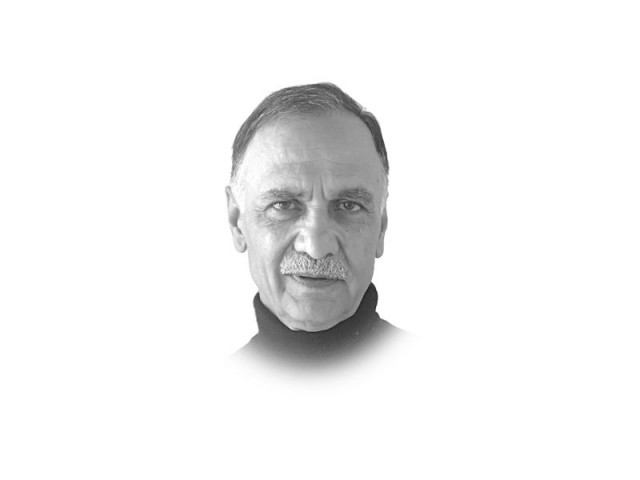Maintaining the spirit of goodness post-Ramazan
There could be several reasons why people behave this way during Ramazan.

For 30 days most Pakistanis fasted — abstaining during daylight hours from food, water and other bodily desires, besides being more punctual and regular in daily prayers; indulging more in charity; and performing other religious deeds more than usual.
The self-discipline and spiritual focus that comes from fasting generally improves people's conduct and behaviour. One presumes that during Ramazan people do not lie; refrain from giving or taking bribes; do not adulterate food; avoid cheating clients or business partners — or at least do less of these bad things.
During the holy month, attendance at mosques, recitation of the Quran, late night Tarawee prayers and visits to religious sites also witness a rise. These collective activities engender a sense of community, and enhanced accountability. People thus tend to be kinder to each other and avoid verbal abuse or physical violence. They also tend to be more forgiving.
There could be several reasons why people behave this way during Ramazan.
One reason could be fear and apprehension — there may be a perception that sanctions and rewards are higher during Ramazan. So, lying, cheating and bribing get bonus penalties while charity and other pious acts get bonus rewards. By this logic, doing prohibited things during Ramazan will increase the chances of going to Hell, more than in other months; while good acts will increase the chances of Heaven, more than in other months.
A second reason could be that social pressure makes people behave better. It would be embarrassing to be caught lying during Ramazan, just as it would be shameful to ask for a bribe during the holy month. Also, during Ramazan, it would look bad if one did not do overt acts of charity such as providing Iftar to the needy or buying new clothes for the poor.
A third reason could be that the social returns to good behaviour are higher in Ramazan when most people follow the rules. It is easier to behave better if I perceive that others will not lie, cheat, needlessly berate each other and not ask for bribes or favours to do their jobs. If there is a magic circle of good behaviour during Ramazan, it would be better to be inside rather than outside.
The holy month of Ramazan is now over. Eid has been celebrated with food, sweets and new clothes. And now?
There are no surveys or studies comparing peoples' behaviour during and after Ramazan. However, it is normal, across all cultures and religions, for people to show strong improvements in behaviour during a period of intense focus such as fasting or pilgrimage. It is also difficult to maintain these improvements once the immediate circumstances change and the pressures to behave well are gone.
However, in Pakistan levels of corruption are generally perceived to be high, and levels of trust are low. In this context, it would not be surprising that after a month of pious behaviour, people quickly slide back to "normal" lifestyles.
The question therefore arises: If Pakistanis can behave better during Ramazan, and this makes for a kinder, better and more efficient society, why cannot they behave the same throughout the year?
Clearly if people are responding to perceived religious guidance that good behaviour is better rewarded in Ramazan, they will respond accordingly. It is therefore up to our religious leaders and opinion-makers to clarify that being a good Muslim means an upright conduct throughout the year.
It is also up to other opinion-makers, for example, those in position of power and in the press, to point out that society works better during Ramazan and we should use this experience to improve our behaviour throughout the year.
But finally, societal change is up to each of us. As long as we see our religion as a set of rules, an agglomeration of dos and don'ts, and as a collection of rituals, we are unlikely to change.
We will change only if we see our society as being based on morality — where people behave honestly and kindly not because they are told to do so, but because of an inner sense of what is right and what is wrong. It also depends on developing a democratic consciousness where everyone, irrespective of their religion, creed, ethnicity or gender, is treated equally.
Are we, as a nation, willing to make this change?
















COMMENTS
Comments are moderated and generally will be posted if they are on-topic and not abusive.
For more information, please see our Comments FAQ